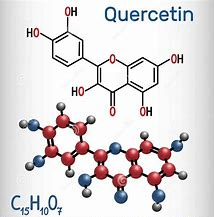Grape seed extract is derived from the seeds of grapes, which are the small, crunchy bits found inside the fruit. These seeds are packed with powerful antioxidants and other beneficial nutrients, which make them a popular ingredient in dietary supplements and skincare products.
Antioxidants are important because they protect our cells from damage caused by free radicals, which are unstable molecules that can damage cells and contribute to chronic diseases such as cancer, heart disease, and Alzheimer’s disease. Grape seed extract is a potent source of antioxidants, particularly proanthocyanidins, which are flavonoids that have been shown to have numerous health benefits.
One of the most well-known benefits of grape seed extract is its ability to support cardiovascular health. Studies have shown that grape seed extract can help reduce blood pressure, improve circulation, and lower levels of bad cholesterol (LDL) while increasing levels of good cholesterol (HDL). These effects are due in part to the flavonoids in grape seed extract, which can help strengthen blood vessels and reduce inflammation throughout the body.
Another important benefit of grape seed extract is its ability to support brain health. As we age, our brains naturally begin to decline, and we may experience memory loss, cognitive impairment, and other symptoms of age-related decline. However, research has shown that grape seed extract may help slow this process by protecting the brain from oxidative stress and reducing inflammation.
In addition to supporting cardiovascular and brain health, grape seed extract may also help protect the skin from damage caused by UV rays and other environmental factors. Studies have shown that grape seed extract can help reduce the appearance of wrinkles, fine lines, and age spots, and may even help protect against skin cancer.
Grape seed extract is also rich in vitamin E, which is an important nutrient for overall health and well-being. Vitamin E is a fat-soluble antioxidant that helps protect our cells from damage and supports healthy immune function. It also plays a role in the formation of red blood cells and helps maintain healthy skin and eyes.
In addition to these benefits, grape seed extract has been shown to have anti-inflammatory properties, which can help reduce pain and inflammation throughout the body. This makes it a popular natural remedy for conditions such as arthritis, asthma, and allergies.
When shopping for grape seed extract supplements, it’s important to choose a high-quality product from a reputable manufacturer. Look for supplements that contain at least 95% proanthocyanidins, which are the active compounds in grape seed extract. You may also want to look for supplements that are standardized to contain a specific amount of proanthocyanidins per serving, as this can help ensure that you’re getting a consistent dose of the active ingredient.
It’s also important to talk to your doctor before taking grape seed extract or any other dietary supplement, especially if you have a pre-existing medical condition or are taking prescription medications. Grape seed extract can interact with certain medications, including blood thinners, so it’s important to make sure that it’s safe for you to take.
In addition to taking supplements, you can also get the benefits of grape seed extract by eating grapes and drinking grape juice. However, keep in mind that grapes and grape juice are high in sugar, so it’s important to consume them in moderation as part of a balanced diet.
Overall, grape seed extract is a powerful natural ingredient that can provide a wide range of health benefits. Whether you’re looking to support cardiovascular health, protect your brain from age-related decline, or improve the appearance of your skin, grape seed extract may be able to help. Just be sure to choose a high-quality supplement and talk to your doctor before starting any new supplement regimen.

